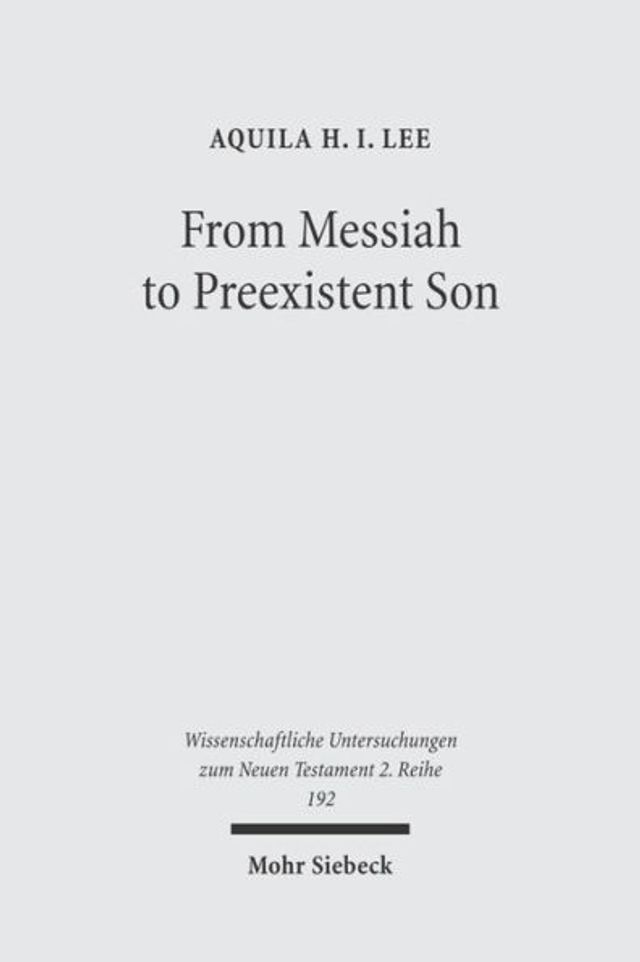Home
From Messiah to Preexistent Son: Jesus' Self-Consciousness and Early Christian Exegesis of Messianic Psalms
Loading Inventory...
Barnes and Noble
From Messiah to Preexistent Son: Jesus' Self-Consciousness and Early Christian Exegesis of Messianic Psalms
Current price: $118.00


Barnes and Noble
From Messiah to Preexistent Son: Jesus' Self-Consciousness and Early Christian Exegesis of Messianic Psalms
Current price: $118.00
Loading Inventory...
Size: OS
*Product Information may vary - to confirm product availability, pricing, and additional information please contact Barnes and Noble
Aquila H.I. Lee explores the development of early Christian understanding of Jesus as the preexistent Son of God. He first reviews recent attempts to explain the development as a result of the influence of Jewish angelology and similar speculations. In the second part he argues that neither the personification of various attributes of God, including wisdom, nor speculations about principal angels and a preexistent messiah in Second Temple Judaism ever provided a ready-made category for viewing Jesus as a divine and preexistent being alongside God. An examination of the Synoptic evidence for Jesus' self-consciousness of divine sonship and divine mission in the whole context of his life and teaching shows that his self-understanding was open to interpretation in terms of pre-existence. The author also examines the early Christian use of Pss 110:1 and 2:7 against this background. He proposes that the root of preexistent Son Christology is to be found in early Christian exegesis of these two messianic psalms (the catalyst) in the light of Jesus' self-consciousness of divine sonship and divine mission (the foundation). The tremendous impact left by the resurrection event and the resulting conception of Jesus literally enthroned to God's right hand led them to see Jesus as the preexistent Lord and Son of God. In the final part of this book Aquila Lee argues that the pre-Pauline 'sending' formula God sent his Son (Gal 4:4-5; Rom 8:3-4; Jn 3:16-17; and 1 Jn 4:9) derives from this understanding of Jesus as the preexistent Son of God rather than from divine wisdom christology.


















